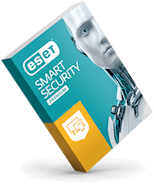What is antivirus?
Originally, an antivirus program was a piece of software that detected and sometimes removed computer viruses from infected devices, whereby it also helped stop further propagation of the malicious content. That was mostly in the 1990s and in the beginning of the 2000s. However, with the dramatic growth in numbers of malware in other categories, antivirus programs have evolved into complex security solutions.
To ensure their users’ security, most contemporary protective products use multiple technologies. These allow them to combat a wide range of malicious activities, such as spying, keylogging, credential stealing, unauthorized cryptocurrency mining, unwanted encryption of files (by ransomware), information extraction (by banking Trojans), spam and scams as well as other forms of cyberattacks.
Read more
Security products also highlight – and if permitted by the user, protect – from questionable and/or potentially unsafe or unwanted applications. These programs are not outright malicious but can negatively influence the performance of the device or irritate the user.
Yet even though the term "antivirus" has lost much of its original meaning, the term is still commonly used when referring to modern and much more advanced security solutions.

How does a modern cybersecurity solution work?
In the very distant past, most antivirus software relied heavily on scan strings (often referred to as “signatures”) that described known malware variants. However, established vendors rapidly augmented these scan strings with much more sophisticated detections based on information gathered by various technologies and approaches such as emulation, heuristics and behavior analysis, to be able to spot even previously unseen variants and families.
This intelligence amended by inputs from machine learning algorithms, sandboxing, in-cloud reputational checks as well as other technologies, allows current security products to detect and block most emerging and suspicious items directly at the endpoint.
All these systems are necessary, especially because of the number of suspicious samples: according to ESET’s telemetry, hundreds of thousands surface each day. However, no technology is a silver bullet that can solve all security issues by itself. Human expertise is therefore still one of the cornerstones of malware research and analysis, essential for achieving high detection rates while keeping false positives as low as possible.

What are the benefits of using a modern cybersecurity solution?
A reliable security solution with multiple layers of advanced technologies can detect, neutralize and remove even deeply embedded malware, protect users from ransomware, spyware, spam, phishing and other social engineering techniques, and is also able to identify attackers’ attempts to exploit vulnerabilities in the system.
This is especially valuable in the current environment, where threats often use sophisticated concealment techniques, can bury themselves deep in the system or act so discreetly that a typical user is very unlikely to notice them or their activities before it is too late.
Read more
Advanced security solutions also offer additional protective services, such as UEFI scans, encryption of valuable data or monitoring of devices connected to the home network. Tools such as a password manager - also in their service portfolio - help manage and protect one’s digital identity online, making it possible to store and use any number of unique and complex passwords.
Protecting the physical device itself is also an important measure included in many modern security solutions. For example, an anti-theft feature can help users find their lost or stolen smartphones, tablets or laptops, and may even enable them to take a photo of the person currently using it.
The way the threatscape has evolved over the past three decades has led also to major improvements in “antivirus” programs. Industry-leading products went from detecting and removing specific, known viruses to modern-day, complex, multilayered cybersecurity solutions employing an array of technologies fighting sophisticated and previously unseen malware variants and cyberthreats.
ESET offers you an award-winning antivirus
Thank You for Downloading
Your download of file eset_smart_security_premium_live_installer.exe has automatically started. If your download does not start automatically, please click here.
Enjoy being safer online, secured by ESET




